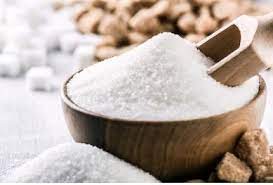Raw sugar futures traded higher on the Intercontinental Exchange (ICE) on Friday as oil prices continued to surge following OPEC+’s decision to make its largest supply cut since 2020.
March raw sugar was up 0.22 cents, or 1.2 percent, at 18.68 cents per pound, having gained 2.8 percent a day earlier. December white sugar gained $1.50 or 0.3 percent to trade at $552.80 a tonne.

They added that rising oil prices could impact production strategies at Brazilian mills, shifting some cane allocation to ethanol and away from sugar if gasoline prices rise as well.
There was also talk of rains in Brazil hurting the pace of harvesting and threatening to cut sugar production in the season.
Cocoa futures also followed a similar bullish trend as March London cocoa climbed 28 pounds, or 1.5 percent to 1,939 pounds per tonne after rising to a peak of 1,943, its highest since May 2020. December New York cocoa was up $23 or 1.0 percent to $2,396 a tonne.
Dealers noted that Sterling’s decline boosted cocoa prices denominated in the British currency, though it has since recovered somewhat. They added that technical chart signals are bullish for London cocoa for now.
Meanwhile, December arabica coffee rose 0.4 cents or 0.2 percent, to $2.181 per pound, after settling down 3.1 percent the previous day to hover near recent one-month lows. November robusta coffee LRCc1 rose $15, or 0.7 percent, to $2,155 a tonne.
Dealers stressed that Arabica has come under pressure as rains in top producer Brazil have improved the outlook for next year’s crop, though near-term supply tightness is underpinning prices.
Market data showed that Colombia’s coffee production this year is set to fall to an eight-year low of around 12 million 60 kg bags, with a drop in plantation renovations and in the use of fertilisers leading to potential problems for future crops.
Also lending support to coffee prices is the report that top robusta producer Vietnam’s coffee exports in September were down 17.8 percent month-on-month. However, the country exported 13.1 percent more coffee on an annual basis in the first nine months of 2022.







